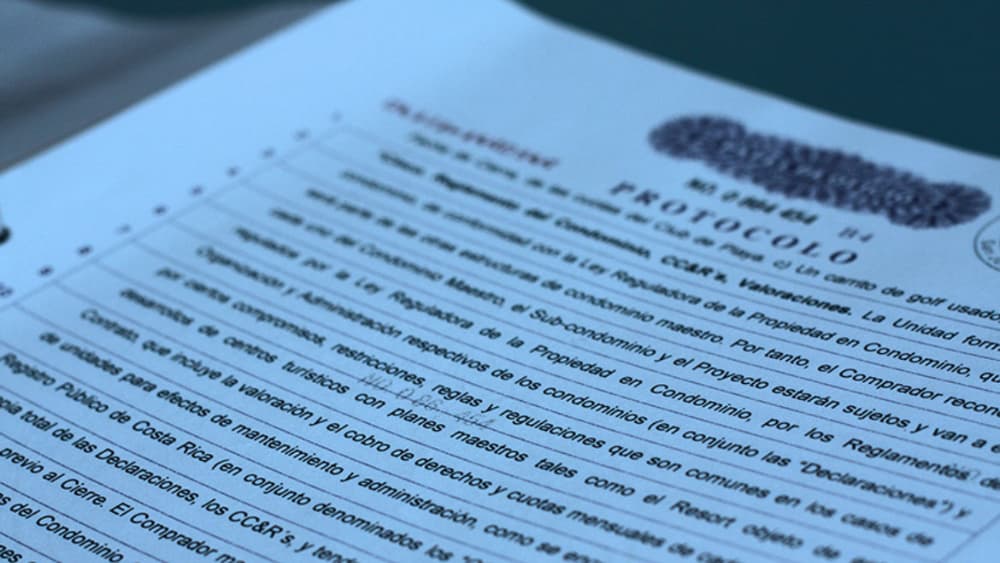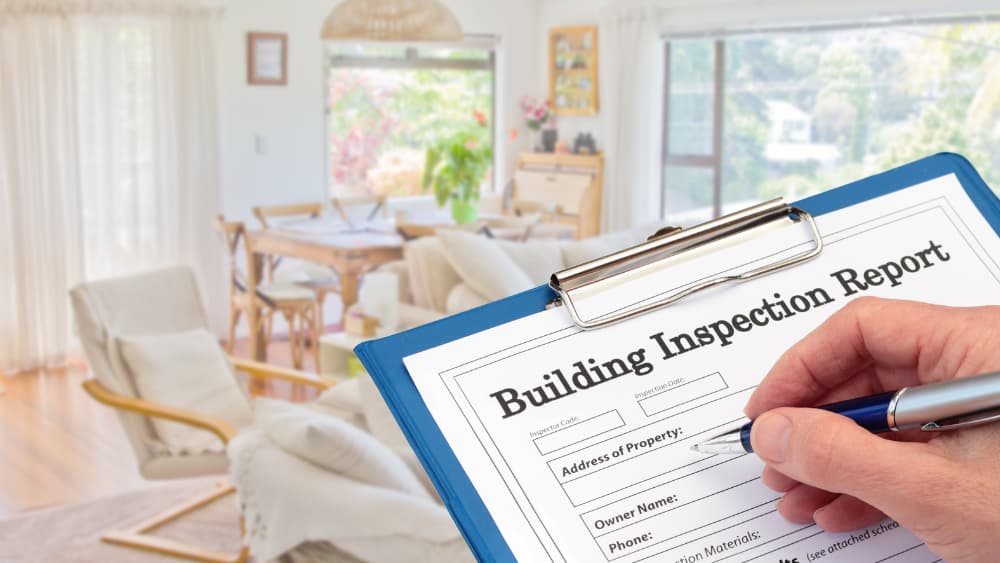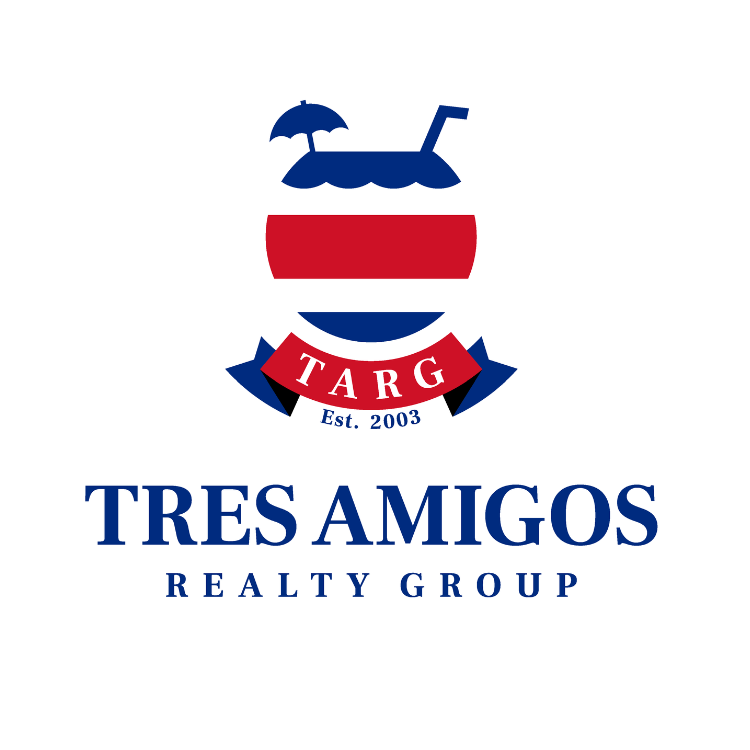If you’re new to buying property here in Costa Rica, I’ll be happy to guide you through the process. It’s very similar to buying property in North America. But there are some very key differences that all Buyers need to be aware of so they don’t make mistakes.
Here’s an informative overview of common mistakes to avoid when buying property in Costa Rica.
 1. Not Conducting Proper Research
1. Not Conducting Proper Research
Mistake: Failing to thoroughly research the property market, location, and legal requirements can lead to poor investment decisions.
Tip: Investigate neighborhoods, property values, and market trends to make an informed decision and hire a reputable Realtor® like me! Here’s why…
- There is no real definitive Multiple Listing Service in Costa Rica like MLS.com. You have it pretty easy in North America with a central clearinghouse for all Realtor® listings in the United States from coast to coast. It’s not like that here. Though the Costa Rica Global Association of Realtors gives its members access to Latin America’s Omni MLS, the system is only as good as those members who subscribe to it and use it – and use it correctly. You have to pay to play, and even then, a lot of agents sit it out on the bench.
- Additionally, many listings are duplicated or pirated on many “agent” websites and their sales status and/or pricing are rarely if ever updated. Get ready for a ton of fake or inaccurate Google search results – there’s a lot of noise out there. It’s really important you roll up your shirtsleeves and be able to weed out the accurate and up-to-date property information from all of the surrounding noise. But how can you if you don’t know the market?
Bottom Line: Empirical, “boots on the ground” knowledge of the local real estate market is what you will lean on to get the best results. Tres Amigos Realty Group has 14 agents with over 200 years of collective real estate experience here in Papagayo. We sell more real estate in the area than anyone!
2. Ignoring Legal Due Diligence
Mistake: Overlooking the importance of legal verification can result in purchasing property with hidden problems, such as adverse possession claims or liens.
Tip: Hire a reputable lawyer experienced in Costa Rican real estate to conduct a title search and review all legal documents.
Your lawyer and your agent are two people who will have your back throughout your real estate purchase process. The Due Diligence Period (DDP) should be spelled out in any Contract to Buy and Sell Real Estate (a.k.a. Purchase Sale Agreement, or PSA). In a standard fee simple Contract, the DDP typically lasts between 22 and 30 days. In the event it lags, it can be extended via a Contract Addendum.
During the DDP, your attorney will check on the following:
- Are there any liens or encumbrances on the property? Are there any mortgages?
- Does the property have water, or a water availability letter from the Instituto Costarricense de Acueductos y Alcantarillados (AyA). Does it have electricity availability from Coopeguanacaste or the Instituto Costarricence de Elecricidad (ICE).
- Are all real estate property taxes paid?
-
In the event the property is in the name of a Costa Rican corporation:
- Is the corporation up to date?
- Have all annual shareholder declarations been filed? Have all annual fees been paid?
- Have all utilities been paid (phone, electricity, internet, etc.)
- Does the property have a construction permit?
- What is the declared value of the property with the Municipality?
-
If the property is a condo:
- What are the Covenants, Conditions, and Restrictions (CC&R’s)?
- Are Homeowner Association (HOA) fees paid and up to date?
- Does the HOA need to write a letter authorizing the sale and purchase of the property?
During the DDP your agent will check on the following:
-
If the property is a home or condo,
- Arranging a property inspection by a qualified Building Inspector or Home Inspection Engineer.
- Getting a photo or video inventory addendum for the property for Buyer and Seller to verify and sign off on.
-
If the property is a lot or land:
- Arranging a survey of the property with a licensed Topographer to verify that the boundaries of the property coincide with what is registered in the Registro Nacional Republica de Costa Rica (National Registry of Costa Rica).
- Liaising between Buyer and Seller sides in the event the sale is a split commission scenario.
- Staying on top of your lawyer to make sure things get done!
- Staying on top of the Escrow Holder to make sure Know Your Client (KYC) forms, wire transfers, closing statements, holdbacks, credits, and fund dispersals are correct.
Buyers typically have 15 working days to get their initial deposit into a Superindendencia General de Entidades Financieros (SUGEF) certified Escrow account. Escrow fees can be split between Buyer and Seller or paid solely by the Buyer. Each Escrow Agency has its own fee structure, but figure on paying between $500 -$1000 total for sales up to $500,000.
Bottom Line: It’s very important to define exactly what is required during the DDP in the Contract to Buy & Sell Real Estate, which will include contingencies that protect the Buyer.
 3. Not Understanding Property Titles and Shares
3. Not Understanding Property Titles and Shares
Mistake: Many buyers are unfamiliar with the types of property titles in Costa Rica, which can lead to confusion about ownership rights.
Tip: Familiarize yourself with escritura (deed), título (title), and properties with concesiones (concessions), especially coastal properties.
The majority of the property you’ll be purchasing here in Costa Rica will be fee-simple, titled property – especially if it’s a home or condo. However, many of the studio properties here in the Playas del Coco are part of what are called “apartment projects” – they are technically not condominiums even though they are referred to as such – and involve purchasing a share of a Costa Rican corporation that owns the project. The share purchase gives the shareholder exclusive use of the “apartment”. But there’s no title, and your purchase amount won’t count toward getting your Residencia (Residency) under the new Ley Inversionista 9996 (Investor Law No. 9996).
That stated, the majority of beachfront property you’ll be purchasing here in Costa Rica will be concession property. Owning rights to a concession is not the same as having title to a property. Click here to learn more about concessions and the Ley sobre la Zona Maritime Terestre (ZMT, or Maritime Land Zone Law).
Bottom Line: Make sure your real estate agent and Costa Rica lawyer explain to you the difference between shares, concessions, and titled property.
4. Disregarding Zoning Laws and Regulations
Mistake: Buying property without checking zoning regulations may lead to restrictions on property use or future development.
Tip: Research the land use permissions. Your lawyer can help you obtain an Uso de Suelo (Land Use Specification) if the Seller doesn’t have one so you can understand what is allowable on the property before you purchase.
If you’re buying a lot, farm, commercial property, or any piece of land you’d like to develop, it will be very important to obtain what is called an Uso de Suelo (Land Use Specification). This is tantamount to what North Americans call a zoning permit. It states exactly what can be constructed on the property (condos, single-family home, commercial, mixed-use, etc.), the maximum height of the structure(s), and the total area of the property that the structure(s) can cover. It can be written into a DDP contingency.
Bottom Line: You don’t want to buy something zoned for single-family use when your plan is to develop mixed-use commercial/residential. Make sure you know exactly what is allowed to be built on the property you are buying to build or develop on.
 5. Overlooking Property Condition
5. Overlooking Property Condition
Mistake: Neglecting to inspect the physical condition of a property can lead to unexpected repair costs.
Tip: Conduct a thorough inspection and consider hiring a home inspector to assess cosmetics, structural integrity, electrical, plumbing, mechanical, and any necessary repairs that may be required.
There should always be a contingency in the Contract to Buy & Sell Real Estate for a building inspection to be performed by the Buyer, or the Buyer’s representative, at the Buyer’s cost. Licensed North American building inspectors as well as Costa Rican engineers can perform an inspection of your home or condo during the DDP so that you know the property is whole with no surprises.
If there are issues with the property after the inspection – say a damaged gutter from a fallen tree limb – that need repair, you can issue a contract amendment that will issue a credit at closing to the Buyer for the amount needed to repair the problem. An estimate can be solicited from a contractor for the work putting a dollar amount on the repair. The addendum would be signed by both the Buyer and Seller for credit to the Buyer to be dispersed by escrow at closing. After closing, the Buyer can use the credit to pay the contractor for the repairs.
In the case of land and lots, there should always be a contingency in the DDP for the Buyer to hire a topographer who will survey the property and make sure that the boundaries agree with what is in the Registro Nacional Republica de Costa Rica (National Registry of Costa Rica). All titled properties in Costa Rica are a matter of public record and are registered in the Registro Publico. But sometimes, property information may be inaccurate or outdated. And sometimes fence lines “walk” and do not reflect the actual property boundaries.
Bottom Line: Make sure you protect yourself by adding contingencies in the Contract to Buy & Sell Real Estate for building inspections and property demarcation verification. If anything is off, you’re protected and can walk away from the deal – or have the Seller fix it or credit you at the Seller’s expense.
6. Not Factoring in Additional Costs
Mistake: Buyers often underestimate costs such as closing fees, taxes, and ongoing maintenance.
Tip: Budget for additional costs including property transfer tax, legal fees, new corporation, home insurance, escrow fees, and property management if applicable.
My rule of thumb for calculating closing costs for the Buyer is to figure conservatively on 5% of the purchase price. So, if you’re buying a condo for $200,000, you should budget an additional $10,000 for closing costs. My average is about 4.78%. Those costs include everything except home insurance and property management fees. It can be less on share transfer properties as there are less legal fees involved with transfer of shares versus transfer of title involving title transfer taxes and other fees.
Bottom Line: Have a clear conversation with your real estate agent and especially your Costa Rican Lawyer regarding the following:
- Transfer taxes
- Registration stamp fees
- Notary fees
- Due diligence fees
- Costa Rican corporation registration fees, expenses, and taxes
- Registration of Beneficiaries (if applicable)
You should not see any surprise fees on the final closing statement at the last minute before you’re scheduled to close. They should all be defined up front.
 7. Rushing the Buying Process
7. Rushing the Buying Process
Mistake: Making hasty decisions can result in overlooking crucial aspects of the purchase.
Tip: Take your time to weigh options, consult with your qualified real estate agent and your Costa Rican lawyer, and fully understand all conditions and contingencies.
It’s important to have a solid Contract to Buy & Sell Real Estate that clearly states:
- The deadline for acceptance of the offer.
- The closing date.
- Real estate commissions.
- Escrow agency.
- The time frame for the initial deposit to escrow (earnest money) including the KYC process (Know Your Client)
- The time frame for the DDP along with all contingencies including building inspection, fumigation, cleaning, and/or topographical survey in the case of a lot or land.
- All other contingencies including solicitation of building permit(s), paid and up-to-date property taxes, water availability letters, electricity availability letters, Covenants, Conditions & Restrictions (CC&R’s) and, in the case the property is held in the name of a corporation, the shareholder’s declaration, D-101 filings, proof of annual fees and taxes being paid.
Be realistic about the contract time frame. If Costa Rican public holidays are involved, some things may slip because banks and local government institutions will be closed for business (though a good contract will account for these). If extensions are needed, a simple contract addendum can be issued for both the Buyer and the Seller to approve without killing the deal.
Stay firm and focused on keeping your real estate agent and legal team on their toes in order to keep things moving along. But be prepared to adjust on-the-fly if no other option exists.
Bottom Line: Just don’t do anything hasty or impulsive. Get everything in writing. And try to go with the flow without letting go of the tiller. Never lose your temper because things may be taking longer than you had anticipated. That’s a no-no here in Costa Rica and has been the demise of many a well-intentioned sale. Bitch about it after you close. (See 9. Below).
8. Failing to Consider Future Development
Mistake: Ignoring potential changes in the area’s development can impact property values.
Tip: Investigate future infrastructure projects or planned developments in the vicinity before purchasing.
This is sometimes easier said than done. In the case of large projects or infrastructure enhancements “planned” for a certain area, not all may be as advertised – especially here in Costa Rica. I can’t tell you how many times I’ve heard. “They’re going to pave the road this year”. And maybe five years later it actually happens. Sometimes it doesn’t happen at all.
That big new 5-star hotel planned for the area that will increase the value of your investment may not open when planned. Worse, it may be delayed or not even get out of the ground. In the event it’s built, and even during its construction, it may adversely affect existing road infrastructure with additional traffic volume.
Bottom Line: Do as much homework as you can to mitigate risk. Being a little skeptical is a legitimate hedge. Luck favors the prepared.
 9. Not Understanding Cultural Differences
9. Not Understanding Cultural Differences
Mistake: Miscommunication or misunderstanding cultural norms can complicate negotiations and the buying process.
Tip: Build relationships with local agents and be open to understanding and respecting local customs in business dealings.
Costa Ricans are very friendly, patient, polite, and really don’t want to disappoint you. Because of that you will rarely hear the words, “I don’t know”. Costa Ricans would rather make up a story to satisfy you so you’re not disappointed than just be blunt and tell the truth that they really have no idea. It can be frustrating. But it’s just the way it is and after a while you’ll start to be able to tell whether someone actually knows what they’re talking about.
Also, being on time for anything here is not a strong cultural tradition. Delays are the norm. And you’ll just have to swallow the bad tasting medicine.
North Americans tend to be “in your face” and become indignant when they don’t get their way because, “Where I’m from we do it like THIS!” That attitude will give you nothing but pain. Never confront someone in public with your gripe and claim they owe you something. It’s considered extremely disrespectful. That’s a side conversation that needs to happen in private. Otherwise, you’ve just made a very polite enemy and are at risk of having it come back to haunt you.
Bottom Line: Don’t be the “Ugly American”. Take time to ask the right questions and listen to the answers. Look at the world through a new set of eyes. Immerse yourself in everyday culture. Be humble. Play dumb, but don’t BE dumb. Notice things.
10. Neglecting to Review All Contracts Carefully
Mistake: Signing contracts without fully understanding their terms can lead to future disputes.
Tip: Review all contracts with your real estate agent and lawyer to ensure you comprehend every term before signing.
This ties directly into 7., above. I go through all of my contracts section by section with all of my clients and explain to them exactly what each section means. Contingencies during DDP are the meat of the contract and I spend a lot of time making sure my clients understand how each contingency protects them.
To be sure, there are times when a Seller may get hung up on a certain thing, like not wanting to split escrow fees. You may have to make some small compromises to get the deal done. Large compromises can be deal breakers though.
Errors and omissions in contracts weaken your leverage as a Buyer or Seller and can be very costly. While I write the majority of my Contracts to Buy & Sell Real Estate, I always have my clients go through a draft with their legal representative before signing the contract and after they walk through it with me. Often, I will pick up advice from my client’s legal counsel and either edit or add to the contract. It’s important for the agent, client, and legal to work together as a team to achieve the best results. Final DDP approval is always contingent upon approval by the Buyer’s attorney. No approval, no deal.
Bottom Line: Trust between you and your real estate agent is undoubtedly very important. But it’s always good to get a third set of eyes on things to make sure everything is tight. That’ll be your Costa Rican lawyer. Ask questions. But make sure you’re listening too.
The Wrapup: By acknowledging these common pitfalls and taking proactive measures, you can enhance your success with respect to buying property in Costa Rica while minimizing risks. My slogan has always been, “Benefits for all”. Everyone at the table has to feel good about and thoroughly understand the offer, the DDP period with its contingencies, the escrow process, and what’s due to each party at the closing of sale.
If you avoid these pitfalls, everyone at the closing table will feel great about the sale!







